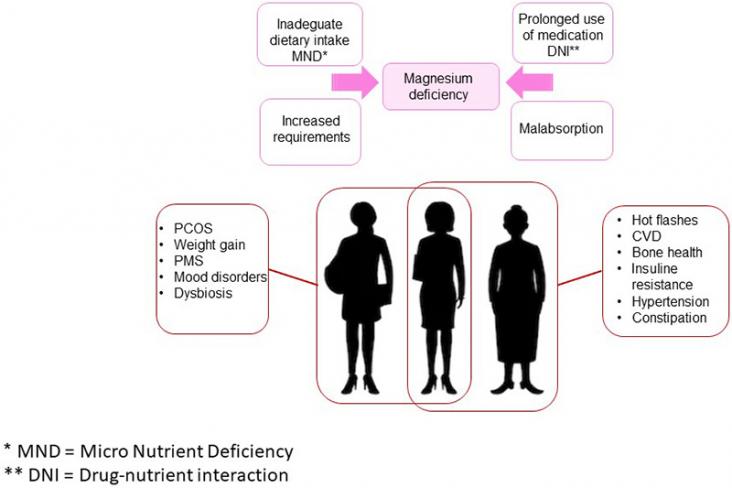Background: Ovarian cancer continues to have a poor prognosis with the majority of women diagnosed with advanced disease.
Background: Understanding subnational variation in age-specific fertility rates (ASFRs) and total fertility rates (TFRs), and geographical clustering of high fertility and its determinants in low-inco
Background: Although hindrances to the sexual and reproductive health of women are expected because of COVID-19, the actual effect of the pandemic on contraceptive use and unintended pregnancy risk in
Background: Genomic medicine has led to significant advancements in the prevention and treatment of cancer.
To exceed in sugar consumption is one of the main causes of overweight and obesity, especially for children and adolescent.

Magnesium is one of the most important micronutrients for the human body, is involved in many physiological pathways and is essential for the maintenance of normal cell and organ function.
United States and South Korean citizens’ interpretation and assessment of COVID-19 quantitative data
We investigate United States and South Korean citizens’ mathematical schemes and how these schemes supported or hindered their attempts to assess the severity of COVID-19.
This Comment article supports SDG 3 and 10 by underscoring the need to address systemic racism in order to achieve health equity, and emphasising the need to develop more nuanced metrics to more broadly document and measure the extent and impact of systemic racism on the health of affected communities.
This Research paper supports SDGs 3 and 10 by providing national US estimates of the association between fatal police violence and pregnancy loss. Fatalities were measured within core-based statistical areas (census-defined urban areas). The findings showed that for each additional police-related fatality during the first 6 months of gestation there was a decrease in the total number of live births within the area. There was a decrease in births among Black women, but not among White women.
This article discusses the radiological safety of groundwater around a uranium mine in Namibia.
